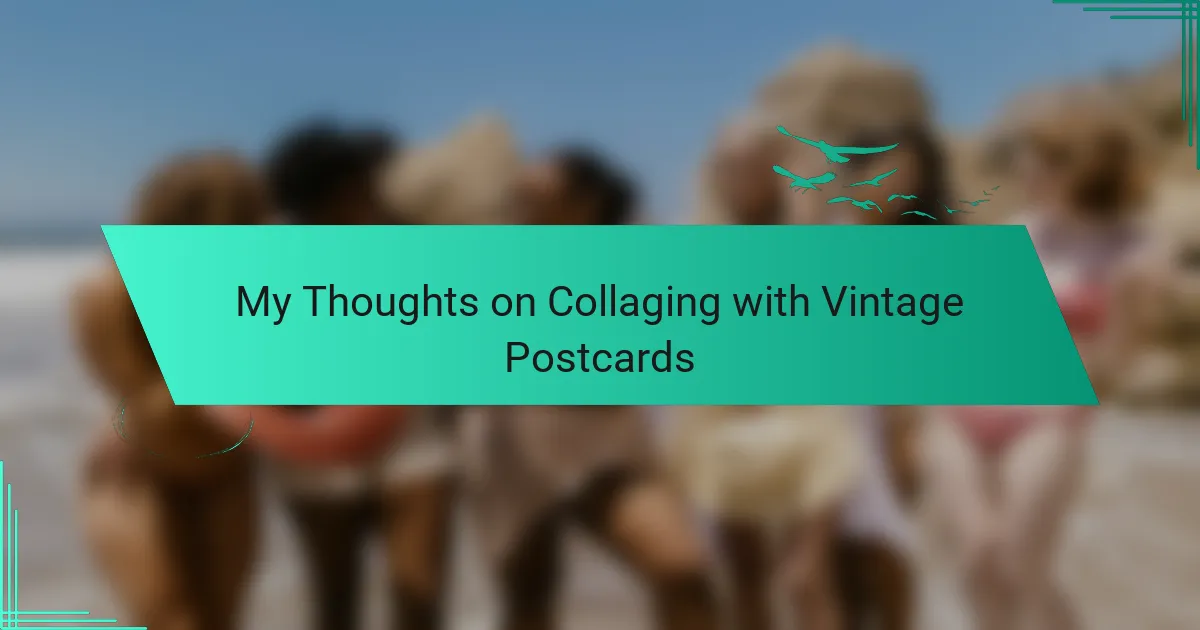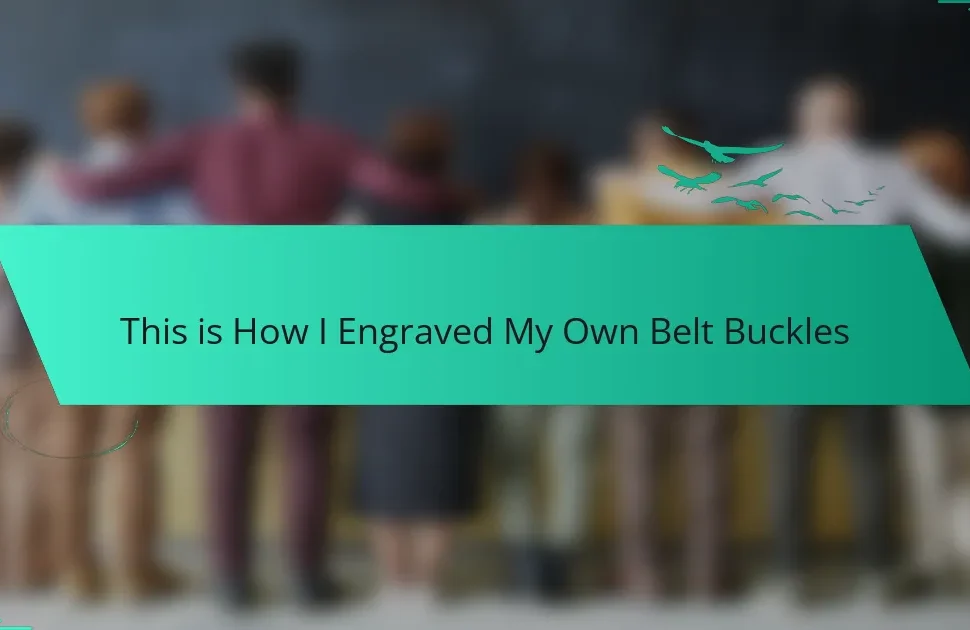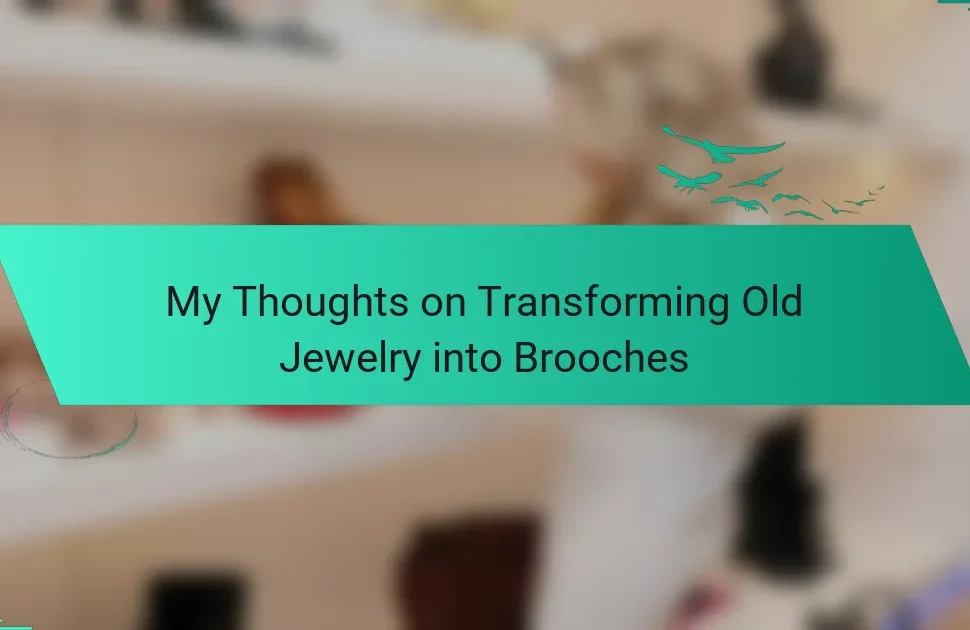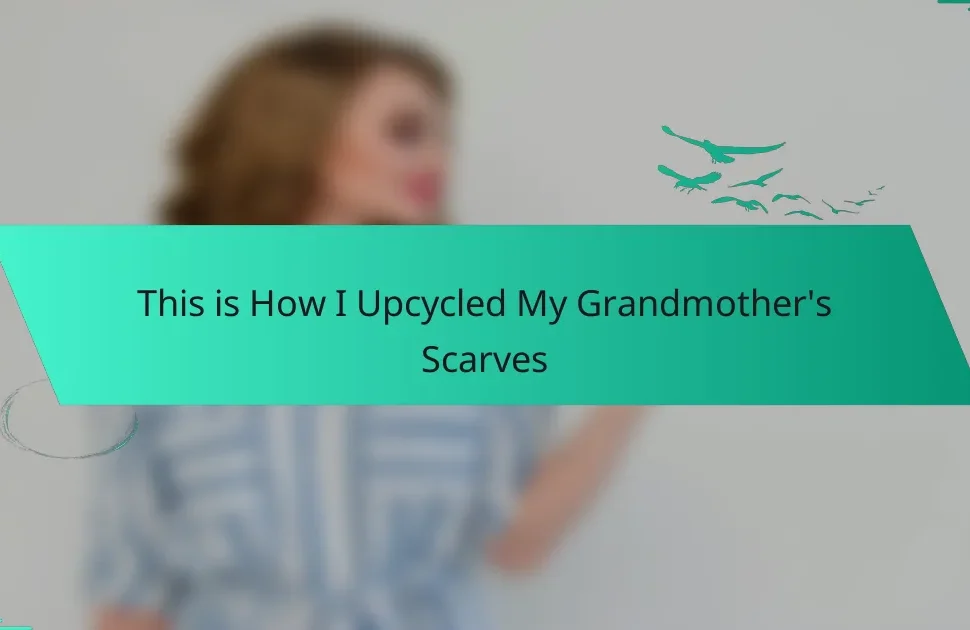Key takeaways
- Vintage postcards are unique historical artifacts that enhance creativity in collaging while providing emotional connections to the past.
- Collaging techniques such as layering, using negative space, and incorporating embellishments can elevate the aesthetic and storytelling of the artwork.
- The right tools, like high-quality scissors and adhesives, are essential for effective and enjoyable collaging experiences.
- Collaging can serve as a therapeutic outlet, allowing for personal expression while exploring nostalgia through the medium of vintage postcards.
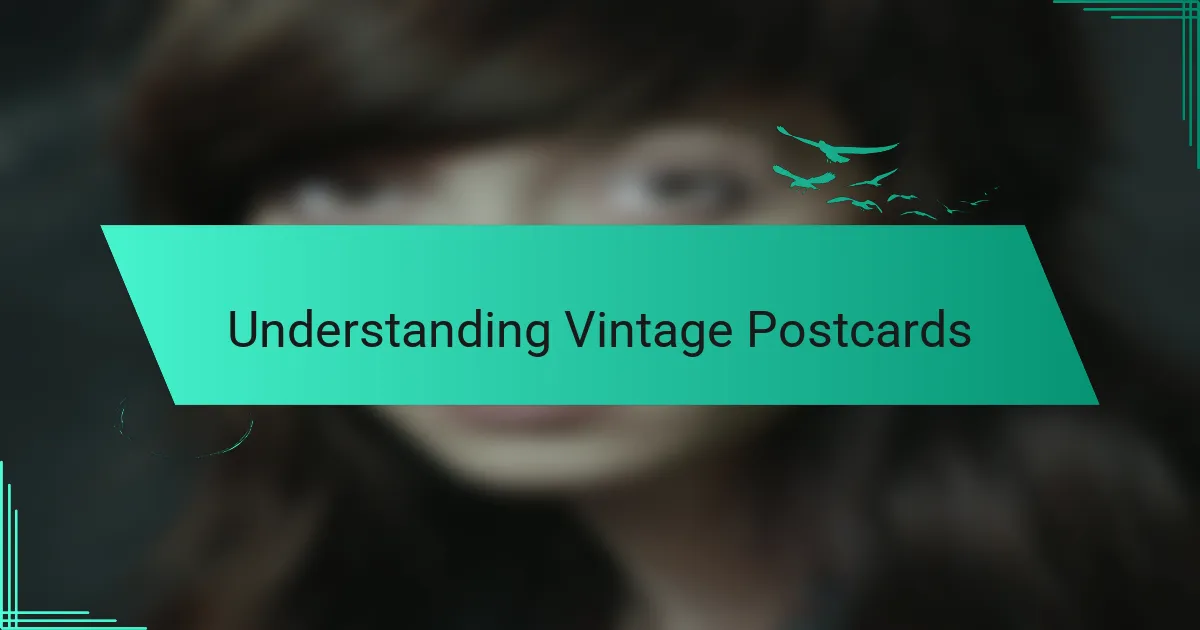
Understanding Vintage Postcards
Vintage postcards are more than just pieces of paper; they are windows into the past. I often find myself captivated by their intricate designs, sentimental messages, and the stories they tell about a different era. Each postcard carries a unique charm, whether it’s a faded image of a seaside resort or a heartfelt note written by someone long gone.
As I’ve explored collaging with these postcards, I’ve come to appreciate not only their aesthetic appeal but also their historical significance. They serve as tangible reminders of moments in time, capturing the cultural nuances of their period. When I incorporate these cards into my projects, I feel a direct connection to the history and emotions behind them.
| Feature | Vintage Postcards |
|---|---|
| Age | Typically over 50 years old |
| Design | Varies widely, often featuring hand-painted or early photography |
| Sentiment | Often includes personal messages and addresses from bygone eras |
| Collectibility | Highly collectible, with certain themes or artists being particularly valued |
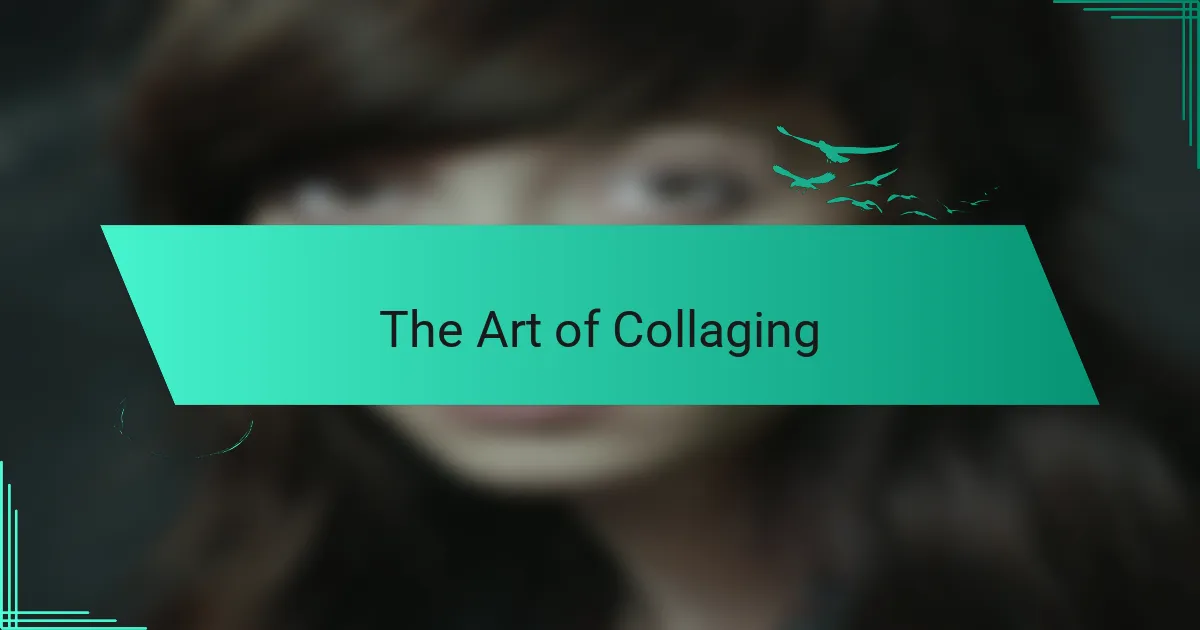
The Art of Collaging
Collaging with vintage postcards is an art form that truly allows individuality to shine through. Each postcard carries its own history and charm, sparking creativity in ways fresh designs often cannot. I remember my first attempt at collaging; I was mesmerized by the stories each postcard held, turning an empty canvas into a personal narrative of nostalgia and discovery.
When creating a collage, I find that combining different textures and colors brings the piece to life. The faded colors of vintage postcards juxtaposed with bold patterns create an intriguing contrast that grabs attention. It’s like piecing together a visual poem, where every element contributes to the overall emotion and story.
In my experience, I often start with a theme—perhaps a specific color palette or a memory associated with a postcard. This thoughtful exploration transforms a simple collection into a beautiful and meaningful creation, celebrating both the past and the personal connections I have with the postcards.
| Aspect | Vintage Postcard Collage |
|---|---|
| Materials Used | Postcards, adhesives, textured paper |
| Emotional Impact | Nostalgic, personal storytelling |
| Artistic Style | Eclectic, vintage, and often whimsical |
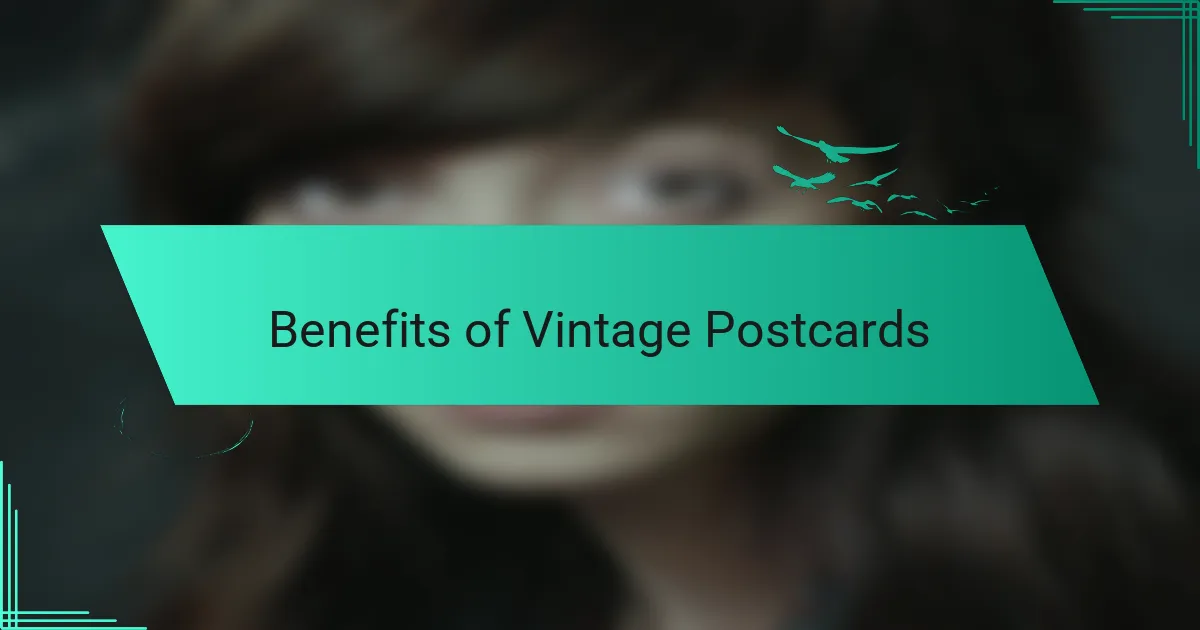
Benefits of Vintage Postcards
When I first discovered the charm of vintage postcards, I was immediately drawn to the unique stories they tell. Each card holds a piece of history, capturing moments and sentiments that feel both personal and universal. For me, using these postcards in my collages isn’t just about the aesthetics; it’s also about connecting with the past and honoring the lives that once touched these tiny pieces of paper.
The benefits of using vintage postcards in your collaging projects are numerous. They bring character and depth to your creations, allowing a personal touch that mass-produced items simply can’t replicate. Here are a few reasons why I love incorporating them into my DIY projects:
- Unique Designs: No two postcards are the same, ensuring your collage stands out.
- Historical Context: Each postcard can spark interest and conversation about its origin and the era it represents.
- Emotional Connection: Using items imbued with the stories of past owners can create a deeper emotional resonance in your artwork.
- Versatile Use: Whether you’re creating a scrapbook, wall art, or greeting cards, vintage postcards can enhance any project.
- Sustainable Crafting: Rescuing and repurposing these cards is an environmentally friendly choice, giving new life to forgotten treasures.
In my experience, bringing these elements together in my projects creates a beautiful blend of history and creativity that speaks to me.
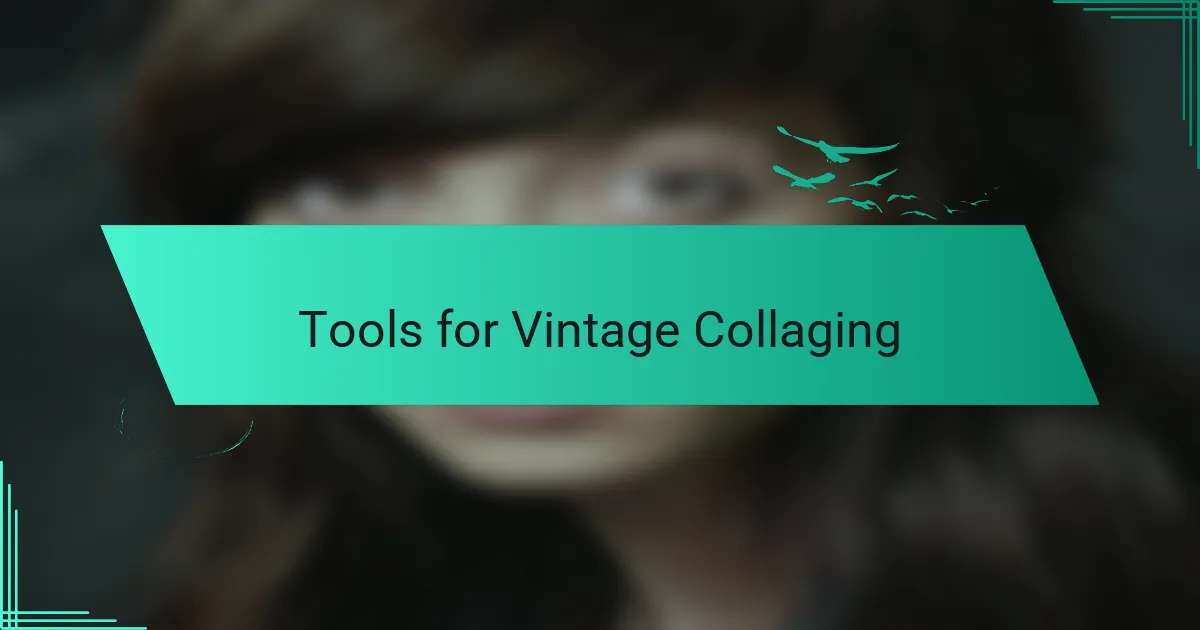
Tools for Vintage Collaging
When it comes to collaging with vintage postcards, having the right tools on hand can elevate your creative process. I remember the first time I gathered my supplies; it was like opening a treasure chest! I quickly learned that a good pair of scissors, a reliable glue stick, and some sharp craft knives would become my best friends in this artistic journey.
Here’s a handy list of tools that I find essential for successful vintage collaging:
- High-quality scissors for precise cuts
- A glue stick or adhesive tape for easy application
- Craft knives for detailed work
- Cutting mat to protect your surfaces
- Tweezers for handling delicate pieces
- Ruler for straight lines
- Decorative washi tape for added flair
Having these tools makes all the difference, allowing you to focus on your creativity without the frustration of fumbling with inadequate supplies. Trust me, investing in the right tools can lead to incredible results!
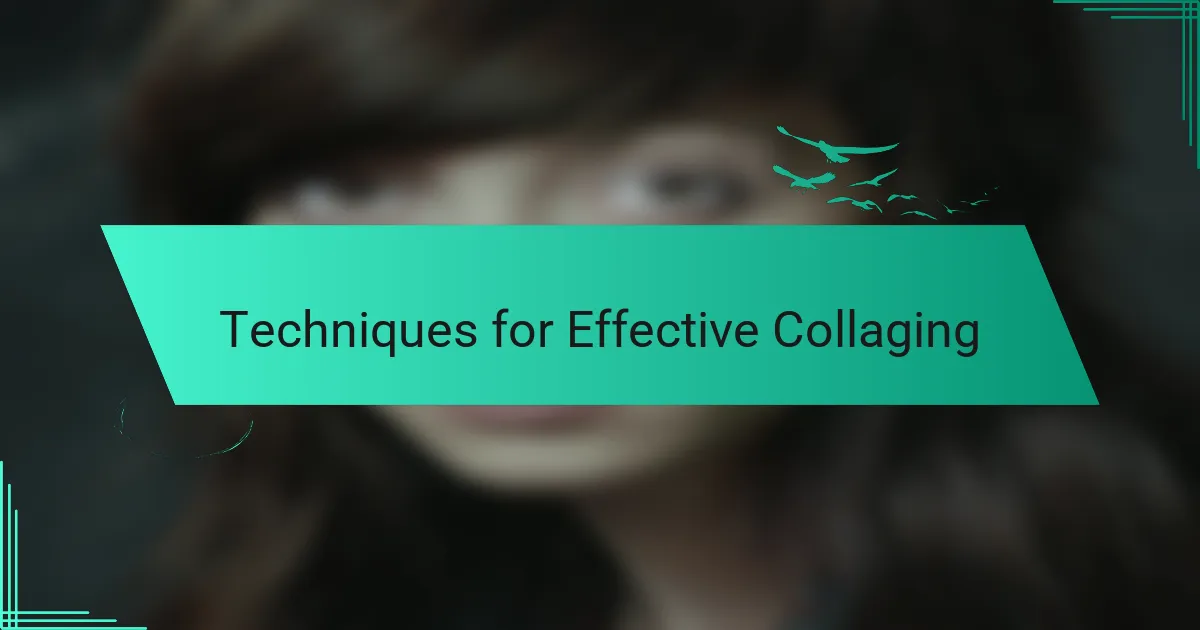
Techniques for Effective Collaging
When it comes to collaging with vintage postcards, I’ve found that layering is one of the most effective techniques. By overlapping different postcards, you can create depth and intrigue, drawing the viewer’s eye into the composition. I remember when I first tried this; I was pleasantly surprised at how the different colors and textures interacted, giving a fresh perspective on cards that I thought I had exhausted.
Another technique that greatly enhances the visual appeal of collages is the use of negative space. This involves leaving some areas of your collage intentionally blank, allowing the postcards to breathe. I often find that the gaps can be just as striking as the images themselves, providing a perfect balance.
Lastly, don’t underestimate the power of embellishments. Incorporating other materials like lace, fabric, or even handwritten notes can add a personal touch that elevates the overall feel of your collage. I love sharing my collages with friends, and the little added details often spark conversations about the stories behind each postcard.
| Technique | Description |
|---|---|
| Layering | Overlapping postcards for depth and interest. |
| Negative Space | Leaving empty areas to enhance focus and balance. |
| Embellishments | Adding personal elements for a unique touch. |
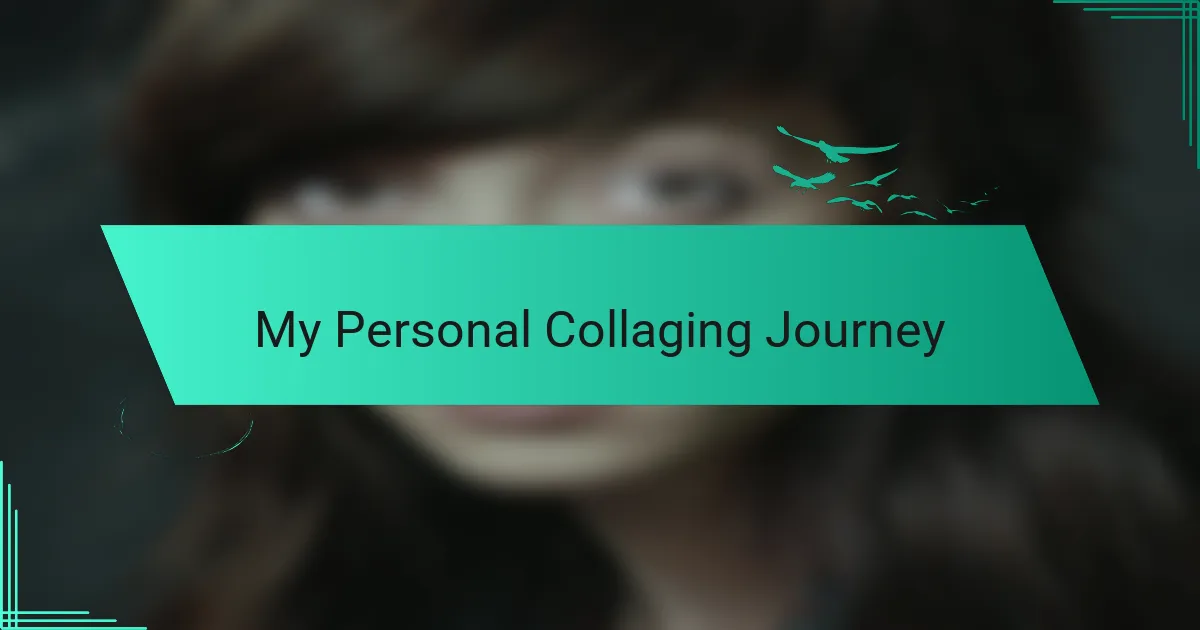
My Personal Collaging Journey
My journey into collaging with vintage postcards has been a delightful exploration of creativity and nostalgia. Each postcard tells a story, often transporting me back to a different era, which sparks my imagination. I remember one afternoon, as I sifted through a box of postcards at a flea market, I stumbled upon a beautifully illustrated card from the 1920s that instantly inspired me to incorporate its vibrant colors and patterns into my art.
I’ve discovered that collaging not only allows me to express myself artistically but also serves as a form of therapy. Cutting and arranging these vintage pieces brings a sense of meditative calm to my routine. I’ve often lost track of time while layering postcards, crafting a unique piece that feels like a personal reflection of my journey and inspirations.
| Vintage Postcards | Modern Postcards |
|---|---|
| Unique History | Mass-produced |
| Rich Texture | Smooth Finish |
| Distinct Aesthetic | Contemporary Designs |
